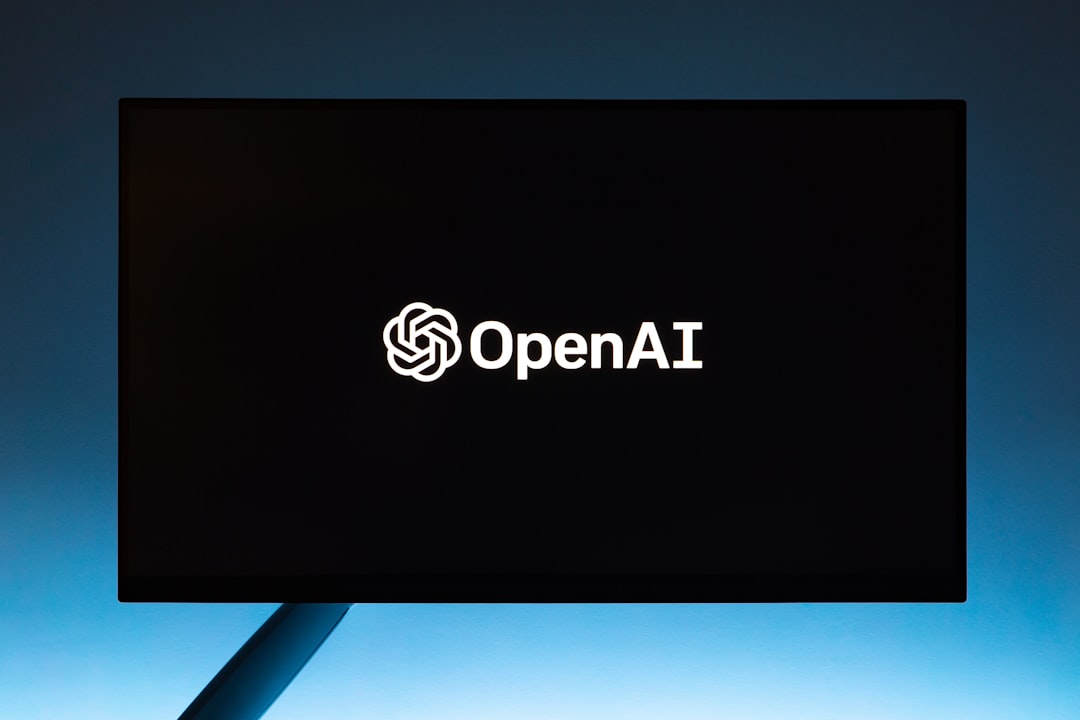The Evolving Role of Business Accountants in the Age of AI and Automation
The Evolving Role of Business Accountants in the Age of AI and Automation - AI-Driven Shift from Bookkeeping to Strategic Advisory Roles
The way accounting is done is changing rapidly, and AI is a major driver of this shift. We're seeing a move away from the traditional, repetitive tasks of bookkeeping towards a more strategic, advisory-focused role for accountants. This isn't just about crunching numbers anymore. It's about interpreting the data, understanding the bigger picture, and using that insight to offer valuable guidance to businesses.
Accountants are now expected to have a broader skillset that goes beyond just accounting. They need to understand how AI works, how to deal with the cybersecurity risks that come with it, and how to integrate this technology into business strategies. This transformation promises to be incredibly beneficial, improving efficiency, strengthening relationships with clients, and ultimately providing more value to businesses. But as with any technological advancement, it brings its own set of challenges, especially in the area of cybersecurity. It's crucial that accountants embrace this evolving landscape and are prepared to address the complexities that arise.
The shift from bookkeeping to strategic advisory roles, driven by AI, is a fascinating development. While AI is taking over the repetitive tasks of traditional bookkeeping, it's also opening up opportunities for accountants to become more valuable to their clients. This isn't just about using fancy tools, though. Accountants are having to develop new skills. The ability to understand and interpret data, coupled with business acumen, is becoming increasingly crucial. And let's be honest, AI is only as good as the data it's trained on. So, there's a need for human judgment and understanding to ensure the insights derived are actually meaningful.
It's also interesting to see how this shift is affecting the profession. Many accountants are pursuing certifications in areas like data analytics and business intelligence, which suggests they're aware of the need to adapt. But there's a skills gap emerging. While the technical expertise around AI tools is improving, the softer skills – communication, empathy, and building relationships – are still vital in this new landscape.
One interesting aspect is the potential for AI to help predict financial trends. If you can accurately predict the future, you can make better decisions in the present. This could be a game-changer for accountants, allowing them to provide more proactive advice, rather than simply reacting to past performance.
It's a complex process, this transformation of the accounting profession. There's a lot to learn, both about AI and the human element of what it means to be a good advisor. But it seems like the accountants who are willing to embrace the change and evolve their skills will be the ones who thrive in the future.
The Evolving Role of Business Accountants in the Age of AI and Automation - Machine Learning Adoption in Financial Pattern Recognition
The way accountants use technology is changing rapidly, with machine learning (ML) playing a big role. ML helps financial professionals analyze huge amounts of data, uncovering patterns that would be impossible to spot with traditional methods. This means they can make predictions about market trends, stock prices, and credit risks with more accuracy. While this sounds great, there are challenges. Ensuring data privacy and dealing with the ethical implications of using ML are just two of them. Accountants need to be constantly learning to stay ahead of the curve as AI technology evolves.
This means their jobs are becoming more focused on analyzing information and developing strategies, instead of just number crunching. They need technical skills to understand AI and soft skills to communicate their findings effectively. This shift means accountants need to be experts on AI, not just users. They must ensure the AI systems are working correctly, are safe from cybersecurity threats, and are used responsibly. It's a big change, but one that could make accountants even more valuable to businesses.
The financial world is getting a serious makeover thanks to machine learning. It's not just about fancy algorithms, though. We're seeing real-world applications that are delivering tangible results. For example, some models are predicting market trends with impressive accuracy, even surpassing traditional statistical approaches. This translates into a significant advantage for institutions looking to make smart decisions.
But it's not all sunshine and rainbows. The speed with which these models make predictions can be a double-edged sword. The "black box" nature of some algorithms means we often don't know exactly why they're making a particular call. This raises concerns about transparency and accountability, especially when it comes to regulations. There are also growing worries about security vulnerabilities, with malicious actors looking to exploit weaknesses in these sophisticated systems.
Despite these challenges, it's clear that financial institutions are racing to adopt machine learning. They're recognizing its potential to cut costs, improve risk assessment, and personalize customer experiences. But it's not just about using technology for technology's sake. Accountants need to be equipped to bridge the gap between the financial world they know and the rapidly evolving field of data science.
This means upskilling in a major way. The days of simply crunching numbers are over. Accountants are now expected to understand the inner workings of these machine learning models, interpret their outputs, and develop a keen eye for spotting any potential red flags. The profession is evolving, and those who embrace this change will be in a great position to thrive.
The Evolving Role of Business Accountants in the Age of AI and Automation - Accountants Expanding into Predictive Analytics and Forecasting
The role of accountants is undergoing a major shift, fueled by the rapid advancements in AI and data analytics. Accountants are no longer just number crunchers. They are becoming predictive analysts and forecasters, using AI-powered tools to uncover hidden patterns in financial data. This means they can provide insights that go beyond historical numbers, helping businesses make better decisions about the future.
This evolution presents both opportunities and challenges. Accountants need to become proficient in AI and data analytics, while also understanding the ethical and cybersecurity implications of these tools. They must also be able to translate complex data into actionable information that is clear and understandable to business leaders.
This isn't just about learning new software. It requires a fundamental shift in mindset and skill set. Accountants who embrace this change and develop the necessary skills will be in high demand as they become crucial partners for businesses seeking to make data-driven decisions. But for those who cling to traditional methods, the future may be uncertain.
The accounting landscape is being reshaped by the rapid adoption of predictive analytics, driven by the ever-increasing power of artificial intelligence. This shift is fundamentally altering how accountants work, pushing them to become data-driven analysts rather than just number crunchers. Accountants are now expected to be comfortable with statistics, data modeling, and interpretation—skills that were once considered outside their traditional domain.
The sheer volume of data available today is enabling accountants to make much more accurate predictions about financial trends, market fluctuations, and potential risks. This capability was largely unimaginable before the digital revolution. But with these new tools come new responsibilities. Accountants are now using advanced software to automate model selection, previously a manual process requiring extensive expertise. This not only improves efficiency but also allows for quicker and potentially more accurate analysis.
This focus on prediction is dramatically changing risk management practices. Accountants can now move beyond simply analyzing historical data and become proactive in identifying potential financial pitfalls. This shift is also prompting collaboration with IT professionals, blurring the lines between finance and technology. As these specialized teams emerge, the need for understanding data ethics and privacy becomes paramount, ensuring that valuable insights aren't gained at the expense of client trust.
While implementing predictive analytics requires significant time and resources, many firms are finding that the return on investment is substantial. This is often driven by more informed decision-making and a reduction in costly errors. The implications of these changes are far-reaching, even impacting the way audits are conducted. Auditors can now rely on data-driven insights to assess risk, making the entire financial oversight process more robust.
The emergence of predictive analytics is also redefining the client-accountant relationship. Instead of simply providing reports, accountants are now able to act as strategic partners, offering bespoke advice based on their forward-looking analyses. This shift underscores the increasing importance of communication and relationship-building skills for accountants navigating this new terrain.
This transformation of the accounting profession has created a significant demand for training programs that focus on data science and machine learning principles. This highlights the need for accountants to adapt and continually upskill to thrive in this evolving landscape. It's a complex and exciting shift, with both challenges and opportunities, as the world of accounting continues to evolve alongside technology.
The Evolving Role of Business Accountants in the Age of AI and Automation - New Skill Set Requirements for Modern Accountants
The skills needed to be a successful accountant are changing rapidly due to AI and automation. Today's accountants need more than just number crunching skills. They need to be comfortable working with data and using technology like robotic process automation (RPA) to handle repetitive tasks. But it's not just about technology. Accountants need to be able to communicate effectively and build relationships with clients. They need to be able to understand what the data means and translate complex information into something that makes sense to non-technical people. Essentially, they're moving from being just number crunchers to being strategic advisors, able to guide clients through the complicated financial landscape of the modern world. The ability to adapt, learn, and keep up with the latest trends is becoming increasingly crucial for accountants to succeed in this changing environment.
The accounting profession is undergoing a dramatic transformation. This isn't your grandfather's accounting, where the focus was solely on number crunching. Modern accountants are now expected to be data detectives, cybersecurity experts, and strategic advisors all rolled into one. This isn't just a matter of keeping up with the times, it's a complete reshaping of the role.
While AI and machine learning are taking over many of the traditional, repetitive tasks, they're also opening up exciting new possibilities for accountants. They are becoming vital players in navigating the complexities of AI-driven decision making, ensuring its ethical and responsible use. This isn't just about the technology, though. Accountants are having to rethink how they interact with clients, embracing more personalized and strategic approaches. It's a fascinating blend of technical skills and interpersonal skills, with communication becoming increasingly crucial.
But this transformation is not without its challenges. The constant evolution of technology means accountants are in a perpetual learning mode, needing to constantly upskill to stay relevant. This can be a demanding task, requiring commitment to ongoing education and a willingness to embrace new ways of working. And there's the issue of cybersecurity, which is becoming more important than ever in this data-driven world.
The evolving landscape of accounting isn't just a matter of technical skills, either. There's a growing demand for soft skills like communication, empathy, and building relationships. This is because accountants are now moving beyond simply crunching numbers and providing reports, to becoming trusted advisors who can guide their clients through complex financial decisions.
The future of accounting is a blend of technology and human connection. Accountants who are willing to embrace this change, develop a diverse skillset, and understand the ethics and security implications of these advancements will be the ones who thrive in this exciting new landscape.
The Evolving Role of Business Accountants in the Age of AI and Automation - Automation Streamlining Processes for Enhanced Efficiency
The way businesses operate is being revolutionized by automation, and the impact on accounting is profound. Tools like Intelligent Process Automation (IPA) and Robotic Process Automation (RPA) are not just about speed; they're changing the very nature of what accountants do. Imagine freeing up your team from mundane, repetitive tasks, allowing them to focus on complex problems and strategic decisions.
This shift is compelling accountants to learn new skills. They need to be comfortable with technology, data analysis, and the ethical implications of automation. Yes, it's about the numbers, but it's also about understanding the human element—building trust and providing valuable insights to clients. This combination of technical know-how and interpersonal skills is what will make accountants truly successful in this new world.
It's not without challenges, though. Security is a big one. As businesses become more reliant on automated processes, they become vulnerable to cyberattacks. And we need to ensure that this transition doesn't lead to a workforce that is solely focused on technology, forgetting the critical importance of communication and building relationships. This is a delicate balance, and one that will define the future of accounting.
The rise of automation in accounting is a fascinating development. I'm constantly surprised by how much it can do, especially in terms of crunching numbers and automating tedious tasks. Think about it - some reports suggest that automation can cut data entry time by as much as 90%! That's a huge time savings, and it allows accountants to focus on the more interesting stuff - analyzing trends, developing strategies, and advising clients.
But it's not just about speed. Automated systems are also incredibly accurate. Studies show error rates can be reduced by more than 80%, which is critical for financial reporting and ensuring everything is compliant. Imagine having real-time financial data at your fingertips, something that was practically impossible before.
And it's not just about saving time and improving accuracy. Automation also reduces costs. Some companies are reporting savings of 20-30%, which is impressive, especially when you consider the potential for scaling operations without adding more staff or overhead. This is where things get interesting – integrating automation with machine learning. We're talking about predictive analytics, uncovering hidden patterns in the data, and using those insights to forecast financial trends. This kind of foresight could revolutionize decision-making in businesses.
But it's not all sunshine and roses. There are challenges, too. One of the biggest is the ethical and security implications of using these powerful tools. We need to ensure that AI systems are used responsibly, with data privacy being a major concern. There's also the issue of people understanding how these complex systems work, especially when it comes to data visualization.
But overall, I think this is a positive development. Automation has the potential to free up accountants from the drudgery of routine tasks and allow them to become more valuable strategic partners for businesses. This shift is definitely worth keeping an eye on. It's going to be interesting to see how the accounting profession adapts to this new landscape.
The Evolving Role of Business Accountants in the Age of AI and Automation - Knowledge-Building Focus in AI-Accountant Collaboration
The relationship between accountants and AI is evolving, moving beyond simple automation to a focus on building knowledge. By teaming up with AI, accountants can now identify trends and potential risks, helping businesses make smarter decisions. AI is taking over the routine tasks, giving accountants more time for analysis. This means developing skills in data analysis but also being able to communicate those insights effectively and understand the ethical implications of AI. This change is forcing accountants to re-evaluate how they work and build stronger connections with clients. The goal is to become more strategic advisors, navigating a marketplace that's changing at a rapid pace.
The partnership between accountants and AI is becoming increasingly complex and fascinating. It's not just about replacing human tasks with automated ones, but about creating a dynamic, symbiotic relationship where both sides contribute unique strengths. AI is incredibly adept at processing massive amounts of data quickly, something humans struggle with. This allows accountants to gain deeper insights into financial patterns, leading to more informed and agile decision-making. AI's ability to learn from past mistakes is particularly valuable. It can pinpoint recurring errors in financial practices, helping accountants create systems that prevent similar issues in the future.
This collaborative environment also fosters the development of more equitable practices. By identifying potential biases in financial processes, AI assists accountants in upholding ethical standards and promoting inclusivity. Furthermore, AI tools offer accountants a level of real-time data analysis previously unattainable. Instead of waiting for monthly or quarterly reports, accountants now have access to instantaneous insights, empowering them to make proactive adjustments and capitalize on fleeting opportunities.
These insights are often presented visually through interactive dashboards, making complex data sets easily comprehensible. This not only helps accountants understand financial trends more intuitively but also makes it easier to communicate their findings to clients in a compelling and persuasive manner. AI is even being used to predict potential financial crises, allowing accountants to offer their clients proactive risk management strategies before vulnerabilities arise. This proactive approach is a testament to the evolving role of accountants, who are now seen as partners in business growth rather than just number crunchers.
The shift from historical data analysis to a broader perspective is another exciting aspect of AI integration. Accountants can now incorporate data from diverse sources—from market trends to social media sentiment—to build a comprehensive understanding of their client's financial landscape. This comprehensive perspective allows for more strategic and effective financial planning.
The next frontier is the development of AI systems that can not only analyze data but also suggest innovative solutions. This "artificial creativity" could potentially revolutionize the way accountants work, allowing them to explore novel strategies and push the boundaries of traditional finance. Meanwhile, AI's vigilance in monitoring transactions in real-time ensures compliance with regulations and significantly reduces the risk of costly fines and sanctions.
These developments highlight the increasing importance of a comprehensive skillset for accountants. They need to be not just technically proficient but also adept at building relationships, communicating complex data, and navigating the ethical considerations of AI. As technology continues to evolve, the collaboration between human ingenuity and artificial intelligence will shape the future of accounting, creating a dynamic and ever-evolving landscape.
More Posts from financialauditexpert.com:
- →How ASC 606 Transformed Revenue Recognition for Nonprofit Exchange Transactions A 2024 Analysis
- →7 Key Financial Transparency Metrics That Revolutionized Institutional Auditing in 2024
- →The Impact of AI on Engagement Assurance A 2024 Perspective
- →7 Critical Steps for Implementing ISO 31000 Risk Management Framework in Financial Institutions
- →Financial Sector Cybersecurity Spending Projected to Reach $45 Billion by 2025 Industry Analysis
- →7 Critical Ethical Dilemmas Financial Auditors Face When Reporting Fraudulent Activities in 2024





